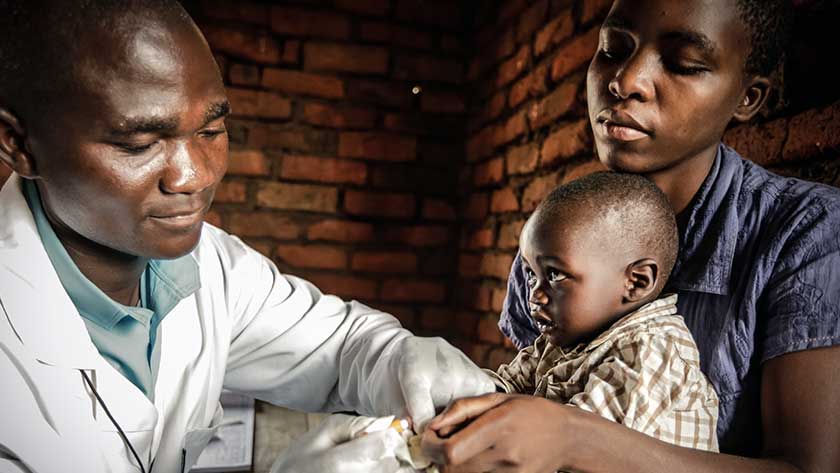Izizi ndi Zathu Zomwe. This is ours. That’s the name my team of adolescent researchers has given a groundbreaking public health initiative—a close study of their peers’ needs, behaviors, and preferences related to contraceptives. That name signals the importance of the qualitative, context-specific information required to succeed in such an initiative—proximity is necessary to develop the new approaches that will improve healthcare access for all. The data from this study will assist product manufacturers and policy stakeholders to address the unique and specific contraceptive needs of young people.
At VillageReach, proximity is multi-dimensional. It must mean nearness in relationship as well as nearness in space and time. Shared ownership allows organizations to truly see and represent the individuals they serve.
Social entrepreneurs have become skilled at finding creative ways to bridge geographic proximity. In Malawi, we are building on a rich history of leapfrogging technologies that can overcome distance in low-resource settings. Data capture and analysis are helping ensure the right health products are available at the right time in the right places. UAVs are being tested to address the availability of blood in emergencies, access to routine health products, and early diagnosis and treatment of infectious disease. Ultimately, these technologies will help create a more responsive health system that can better manage current and emerging public health threats.
Technology is also helping us decrease social distance. Families the world over struggle to connect inter-generationally on topics including politics, puberty, and sex. The cost of transparency is high–and in some families and in some cultures, it is utterly unthinkable for an adolescent to ask an elder even common questions about sexual and reproductive health. When I tell young people that an anonymous health hotline is available specifically to answer adolescent questions, at no cost via mobile phone, you can see, feel, and hear their relief.
In the Zomba district of Malawi, 18-year-old Maria James, had been experiencing severe abdominal pains during menstruation. While she had sought assistance from a nearby health facility, overburdened health workers could only offer her pain killers, with no further advice. She needed to understand what was happening to her and how best to manage the pain.
When our team traveled to the Zomba District to promote the health hotline as a youth friendly service, she felt confident that her problem would be addressed. “I talked to a hotline worker for almost an hour,” said Maria. “We talked about other options to lessen pain, and I was able to stay in school.” Maria has since become an advocate of the service among other girls in her community.
As we explore how technology can help us communicate, capture information, and move products, we also realize that technology has its limitations. Just last month, one of my colleagues helped push a motorbike with vaccines strapped precariously on its back for 27 miles. There are no mobile network to share the news of their delays in Boso-mbuki village, Democratic Republic of the Congo.
Until VillageReach started working in this area last year, the health center manager Ruphin Ndumbala traveled 71 miles each month to collect vaccines at the health district. That is two or more days each way by foot and man-powered canoe, crossing six rivers. Multiply this challenge by hundreds of villages in a single province and then across the 26 provinces in DRC. One can see that even with technology the scale of this challenge is immense.
“Institutions, too, best fulfill their missions by keeping close to those they serve, where they can appreciate the results of their efforts, learn from experience, and respond to changing contexts,” wrote Sally Osberg reflecting on the theme of this year’s Skoll World Forum. 
One thing that I have learned from my work with the adolescents leading Izizi is the importance of this relational and social aspect of proximity. Going out into the community and listening, really listening, is essential to my job at VillageReach. When I talk with a health worker or sit with a group of adolescents, I am reminded in ways both subtle and not-so-subtle of the power of proximity in our work.
It is through personal connection and relationship that we can effectively bridge social distance, which will help us ultimately change the face of healthcare access. “My experience in Boso-mbuki renewed my passion to develop sustainable solutions to improve health in rural communities,” said my Kinshasa-based colleague Freddy Nkosi recently.
This brings me back to Izizi. You begin to feel the power of proximity when the balance shifts–when those who have not had a voice drown out the voices of those of us who have. I’m proud that my work is contributing to this movement.
Alinafe will join us at the 2018 Skoll World Forum to speak on a panel session: Leveraging Technology to Close the Distance in Global Health Access